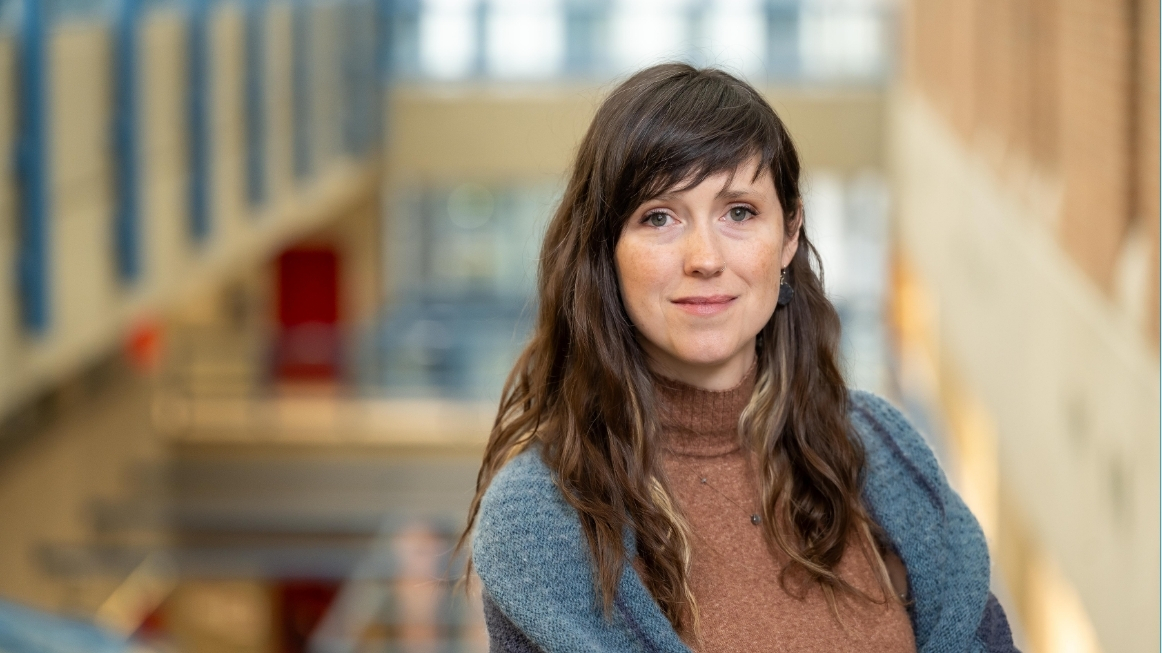

What does thriving mean to you?
For me, thriving is orienting one’s body and mind to live constantly in the present moment. Paradoxically, living in the present moment requires a lot of planning in advance. I think that we’re most successful at being present when we stick to our physical and mental routines: for me, that means eating well and consistently, exercising intensely and often, devoting weekly time to spend with my small group of friends and daily time to spend with my family, and spending as much time as possible outdoors in my natural habitat. By prioritizing these things over everything else, including our careers or our educational endeavours, I believe that we become better caretakers of our own bodies and minds, in turn making us better workers and better students.
What are some of the central challenges you face in your role as a faculty member?
One of the biggest challenges of a faculty job is how the work doesn’t have a natural beginning or end. When I was an undergraduate and graduate student, I worked at a coffee shop, which came with its unique set of challenges (some of which were, in their own way, more stressful than being a faculty member at UBC!). But at the coffee shop, my work ended when my shift ended. I wasn’t lying awake at night (most of the time) thinking about how to make the best cappuccino foam.
As a faculty member, however, there is always work to be done. At the very least, there are always emails to be answered or article submissions to be revised. Moreover, academia promotes a culture of working all the time. People send emails in the middle of the night that require responses, and – from many faculty members’ perspectives – a 40-hour work week is an unthinkable luxury. However, I devote a lot of energy to crafting my schedule so that I work when people in other industries work (from approximately 9:00 a.m. to 5:00 p.m. on weekdays) and so that I focus on my physical, mental and familial health during the other times. Sometimes I have to force myself not to work at night or on the weekends, but it’s worth it to maintain my health and my productivity.
Based on your experiences, please describe the relationship between student mental health & wellbeing and learning?
Student mental health is one of my primary concerns as an instructor (and perhaps particularly as an instructor of psychology). I find that many UBC students are unaware of how many people around them suffer from mental health problems, with the result that these students feel alone when they themselves are suffering. Moreover, I have learned that students here may be at particular risk for mental health problems because they are often so high achieving and put so much pressure on themselves. All of this pressure negatively affects students’ learning and performance, which in turn stresses them out even more! It’s a bit of a vicious cycle. The most important thing that I can teach my students is that they are not alone: more than half of the UBC students that I have met experience anxiety or depression at some point during their education. UBC has so many resources available for students who are facing these issues, and often these resources are more accessible (and cheaper!) than they ever will be once a student has left UBC. We can’t learn well or work well if we aren’t prioritizing our mental and physical health above everything else, and it’s essential that we support each other in this endeavour.
What strategies do you use in your own life that help you thrive as a faculty member?
As someone who has suffered from clinically significant anxiety and depression, I have had to develop a lot of strategies to keep myself working and moving. The most effective things that I can do are to exercise frequently and to be outside where I get plenty of light and fresh air. We are so fortunate to live in a natural paradise here in BC – one that provides for us so many opportunities to thrive outside (even when it’s raining!). It’s also important for me to compartmentalize my life, devoting myself to work when I’m at UBC and to my family and myself when I’m at home. In the end, though, the best strategy I’ve come up with is to constantly revert to thinking about the present. Whenever I catch myself in an anxious loop thinking about the past or the future, I try to centre myself back in the physical, current moment, even if what I’m doing is unpleasant or uncomfortable. It makes life feel so much more manageable!
Kyle Danielson, PhD, is a lecturer in the Department of Psychology, where his primary responsibility is the instruction of undergraduates in developmental and basic psychology courses. Currently he teaches PSYC 302 (Infancy) and the Psychology Department’s two introductory courses (PSYC 101 and 102). His research examines the ways in which infants learn language using their visual, auditory and tactile systems, and how learning two languages at once affects them cognitively and socially. In addition to teaching and research, Kyle is the faculty adviser for Psi Chi, the Psychology Honour Society, and for graduate teaching assistant training in the Department. Prior to starting his career in psychology here at UBC, Kyle was a Spanish teacher in the United States, where he’s from. He tries to spend as much time as possible on the beach or in the mountains when he’s in Vancouver, and exploring off-the-beaten-path and remote destinations when he’s not.


